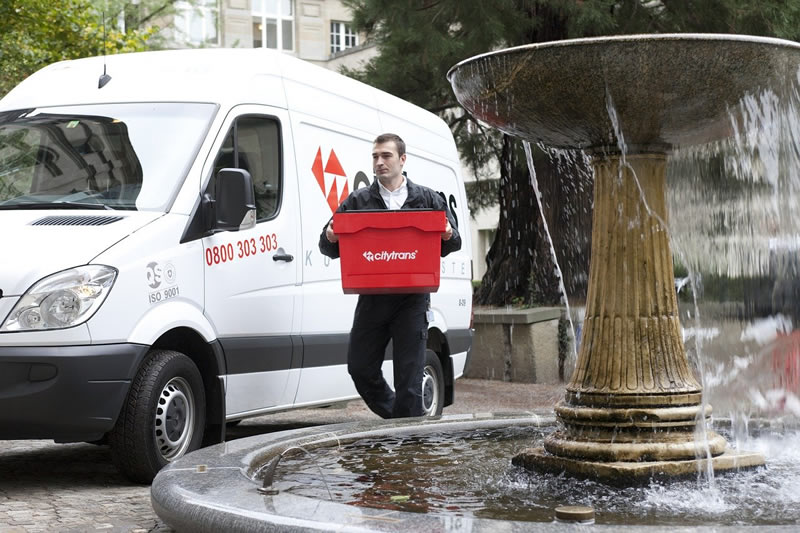Do I Need Business Van Insurance?
Companies / Insurance May 05, 2020 - 01:21 PM GMTBy: Submissions
A commercial van is the beating heart of many small businesses. In some cases, losing access to a van could mean that operations would be interrupted, if not halted entirely. Picture a custom carpentry business that is left without a cargo van. It couldn’t reasonably ask customers to pick up their furniture and third-party transport would put a huge dent on profits.
Insuring your van is required, as it’s a registered vehicle the same as any other. However, that doesn’t mean that standard coverage is adequate for a commercial van. Instead, you’re going to need business van insurance.

The Basics of Business Van Insurance
Commercial vehicle insurance isn’t the same as the standard insurance that’s used for private vehicles. While private vehicles can still be used for business activities with the right insurance, commercial vehicle insurance is designed to cover vans that are exclusively used for commercial purposes. Owning a vehicle that isn’t insured is illegal unless it’s been officially declared off the road with a statutory notice. Even if you rarely use your van, therefore, you’ll need to insure it.
In most respects, commercial van insurance is similar to standard insurance with a few exceptions. Standard private insurance covers up to 10 million pounds of damage to third-party property, while commercial motor insurance only covers five million.
You’ll find that you need commercial vehicle insurance if:
- You use a van as part of your daily business activities, such as transporting goods or people for a fee.
- You conduct any type of service with your vehicle such as building or plumbing.
- You use the van to commute to and from work, even if it isn’t otherwise used in the course of business.
Types of Van Insurance
Commercial vans can be used for a multitude of purposes, each of whichwill have a corresponding type of insurance. The difference is, principally, that some insurers cover certain uses and others don’t. Broadly speaking, they fall into three main types:
- Carrying goods for hire, also known as haulage. This type of van insurance covers you for transporting goods over any distance. Delivery trucks, for instance, fall into this category.
- Hire and reward policies cover business vans used to transport people or goods that you don’t own, for payment. They're typically reserved for single-job uses such as furniture removal.
- Own goods transport is covered by a different policy. It covers commercial vans used to transport goods that belong to you, such as tools or goods that haven’t been sold and are being returned.
What’s the Right Level of Cover for Me?
The answer to this question is largely up to the type of business that you use your van for. Generally, you can get as much coverage as you think is necessary but there is a legal minimum as with other vehicle insurance policies.
Third-party insurance is mandated by law. It’s the lowest level of insurance needed to drive the van and it covers damage or harm done to other people or property if you’re found to be at fault. It won’t, however, cover damages to your van.
Third-party, fire, and theft insurance is the next step up.As its name implies, it covers everything included inthe previous level along with theft of the vehicle and fire damage. Theft of non-business items inside the vehicle is also covered.
Comprehensive insurance is the highest degree of coverage and covers any damage to the van and other people or property.
The level of insurance won’t always be completely up to you to decide. Certain premises – such as airports or other high-risk facilities – will require a certain level of coverage to allow vans to enter. In that case, you’ll need to comply or not do business with them.
Should I Choose Add-ons?
While getting add-ons in many cases isn’t wise when purchasing insurance, it’s important to consider them thoroughly in the case of commercial vans. Some add-ons may be crucial in continuing the regular course of business after an incident. For that reason, they’re well worth paying for. Here are some examples:
- Courtesy van – a temporary replacement vehicle while a claim is sorted and you get your van repaired or replaced can be instrumental in avoiding profit loss.
- Use abroad – if you use your van to conduct business outside of the country, it needs to be specially insured.
- Tools in transit – depending on your profession, you could be looking at serious financial loss if tools get damaged or stolen from your van. Quality hand tools can cost hundreds or thousands of pounds and covering them might be a smart investment.
Get It Right for Peace of Mind
Buying commercial van insurance isn’t a choice, but it’s up to you what type you’ll buy and how much coverage you need. Every business wants to cut costs, but, with business van insurance, if you are not careful, you could end up driving illegally! Visit us today at InsuranceInspect Services
By S N Chatterjee
Copyright 2020 © S N Chatterjee - All Rights Reserved
Disclaimer: The above is a matter of opinion provided for general information purposes only and is not intended as investment advice. Information and analysis above are derived from sources and utilising methods believed to be reliable, but we cannot accept responsibility for any losses you may incur as a result of this analysis. Individuals should consult with their personal financial advisors.
© 2005-2022 http://www.MarketOracle.co.uk - The Market Oracle is a FREE Daily Financial Markets Analysis & Forecasting online publication.



